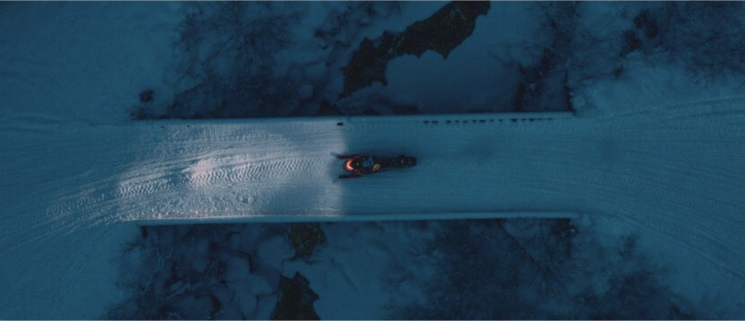
Every new season, my mind is occupied with all the adventures I want to take. My favorite way to take advantage of those trails is on a multi-day overnight trip.
Here are my recommendations and tips for a successful trip.
CHOOSE YOUR ROUTE
First, I always check with the local snowmobile clubs that groom the trails to ensure the area I want to go has open trails and ensure the trail conditions are sufficient. Next, fuel stops. In some remote areas, fuel stops are few and far between. Ensuring every sled in the group is sufficiently fueled to make the next leg of the journey is essential. With the BRP GO! App, you can see the fuel stops and plan according to your travel group’s needs.
After ensuring everyone will have enough fuel to make the trip, I look for any unique areas of interest along the route. In Northern Wisconsin and the Upper Peninsula of Michigan, there are many beautiful waterfalls and lookout areas along the trail to stop and enjoy the view. These stops are great for the scenic views, but also give riders a chance to stop and stretch.
Lastly, where to spend the night. Whether it’s a hotel, motel or resort, I always look for spots that support the local trail systems. Supporting the businesses is absolutely necessary to ensure the trail system will be there for years to come.
RIDING GEAR
Today’s riding gear is more advanced than ever. Like many riders, I wear three different layers and pack an additional layer in my tunnel bag. I start with an ultralight base layer, such as the merino base layer, followed by a moisture wicking flexible layer like the Tech Mid Layer Fleece and my exterior layer consists of the X-Team or Mcode Jacket coupled with the X-Team Highpants. The knee padding on the highpants provides a great cushion for the times I want to ride more aggressively.
Pro Tips
A packable jacket in your tunnel bag doesn’t take up much room and is an additional layer of warmth for those extreme cold days.
The input you give to your sled begins with your hands, so having different, comfortable glove options is critical. I always have 3 different sets of gloves with me. A heavy pair (Absolute O Gloves) for the subzero days, Grip Gloves for most of my riding and, additionally, a pair of X-Team Crew Gloves for when I need to help a fellow rider or to inspect my sled.
Pro Tips
Having a pair of gloves just for trailside repair is vital to keep your riding gloves clean and dry.
TOOLS & EXTRA PARTS
For multi-day trips it’s nice to have a few extra items with you for quick adjustments or repairs. Ski-Doo’s Deluxe Tool Kit is efficient on space and has everything you need to complete any minor trailside repair. Depending on which sled you ride, carrying a quart of XPS oil and extra parts is something you’ll want to consider in the event you’re unable to reach a trailside dealer or fuel station.
ADDITIONAL MUST-HAVES
Like other items mentioned above, a first aid kit should be on your sled every time you ride.
I also carry an Iridium satellite network GPS tracking device. In remote areas without cell reception, this device provides a way to communicate in the event of an emergency. At the very least, always make sure a family member or friend at home knows your route and has scheduled check-in times.
Pro Tips
Carry a small spray bottle of non-freeze windshield cleaner and a microfiber towel to keep your field of vision clear after each day’s ride.
STORAGE
Storage space is clearly at a premium for trips like this. To carry everything listed above, I prefer the multiple compartments and extra space of the LinQ Adventure Tunnel Bag.
And if you still need extra storage, a backpack can always be used, but make sure to keep it as light as possible.
Pro Tips
Even though my LinQ bag is waterproof, I put extra clothes in a 3 gallon zip lock bag to ensure a wet pair of gloves doesn’t soak into my clothes.
Planning a multi-day ride is extremely rewarding, giving opportunities to see places and areas you can’t normally go. With just a little prep, you can

